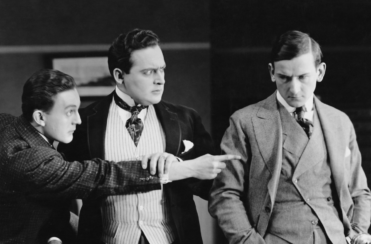Could a bank enforce a loan agreement with a forged signature? Which case won?
A company was established in 1991 and operated a paintball/skirmish business on a property in Sydney. In 2004 and 2009 the company entered into loan agreements with a bank. The amounts totalled approximately $100,000, with a further advance of $50,000, and two overdraft facilities of $15,000 and $20,000.
The company had two directors, who had both personally guaranteed an overdraft facility provided by the bank in 1996.
This same guarantee was used as security for both the 2004 and 2009 loans.
Did “Duff Beer” contravene the advertising code for alcoholic beverages? Which case (of beer) won?
A case in 2014 concerned the advertising code for alcoholic beverages. That year, supermarket industry behemoth Woolworths introduced an officially licensed “Duff Beer” to its outlets which was trademarked “The Simpsons”.
The marketing of Duff kicked off at a pub in Sydney which was transformed for the week into “Moe’s Tavern”, the bar depicted in the popular animated show The Simpsons, and featured “Krusty Burgers”.
The online campaign was on Facebook and it made it clear that this Duff beer was officially sanctioned by The Simpsons and by the show’s creator, Matt Groening.
Contesting a will in NSW – the horror story edition
Fencing manufacturer sues rival for infringing its registered design – Which case won?
A case heard in the Federal Court in 2013 concerned a registered design belonging to a manufacturer of steel fencing panel sheets used in backyard fencing.
The manufacturer, Gram Engineering, had ridden the boom in home swimming pool construction and the do-it-yourself backyard improvement wave by developing a product that was superior to other types of steel fencing on the market at that time.
The GramLine fencing sheets had a sawtooth or zig-zag profile with six pans or modules per sheet. The particular advantage of GramLine fencing sheets was that they looked the same from both sides, so there was no “good side” or “bad side”, as was the case with existing products on the market.
New laws to tackle subscription traps and make it easier to cancel online subscriptions
”I suffered a loss because of bad investment advice, so the financial advisor should compensate me.” Which case won?
An investor was a long-term client and personal friend of the director of a financial firm.
The financial firm was the responsible entity of a mortgage fund, and the investor was a long-term investor in the fund.
The fund invited investors to invest in mortgages secured over real property and earn a fixed rate of return over a fixed investment term.
The investor and his self-managed superannuation fund (SMSF) invested a total of $172,000 in a second contributory mortgage in the fund.
Did the bank have the right to close the escort agency’s business bank accounts? Which case won?
An Australian company ran an escort agency which operated openly and legally. The enterprise was licensed by the state government.
The company operated four business bank accounts with a major Australian bank. It had access to internet and telephone banking services as part of that arrangement.
In November 2019 the bank sent the company a letter, titled “Notice of accounts and services closure”, in which the bank set out its intention to close the company’s accounts, providing it with 45 days to make alternative banking arrangements.










